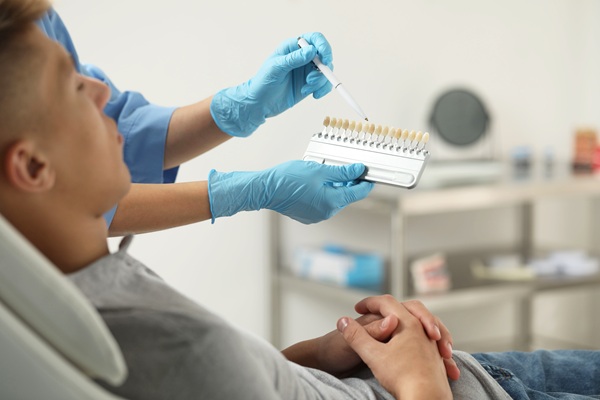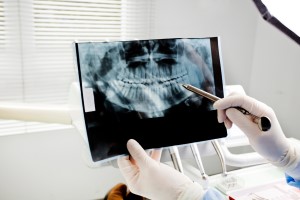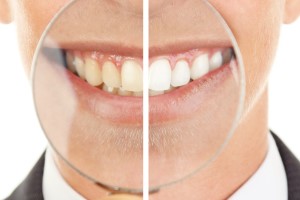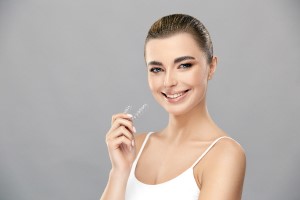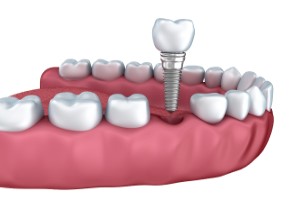7 Things You Should Know About Over the Counter Oral Hygiene Product Active Ingredients

Triclosan Might be in Your Oral Hygiene Product
Triclosan is an antibacterial composite in cleaners, soaps, body washes and oral hygiene products of all sorts. While triclosan combats gingivitis, some people argue it might have negative health ramifications. There is some evidence triclosan can alter liver health. Others argue this antibacterial composite might disturb thyroid function.
Most Oral Hygiene Products Have Abrasives
Abrasives help remove stains from the teeth. The initial abrasives were quite rough in texture. Today's abrasives are comparably gentle. They primarily consist of hydrated aluminum oxides, dehydrated silica gel and calcium carbonate.
Sodium Lauryl Sulfate
Also known as SLS, sodium lauryl sulfate is in many oral hygiene products. Consisting of palm kernel oil and coconut oil, SLS sometimes faces critiques for its byproduct made during the manufacturing process.
Polyethylene Glycol
Polyethylene glycol, known as PEG, is an organic alcohol used in the form of a humectant in oral hygiene products. Its purpose is to retain moisture and serve as a formula stabilizer. However, there is a downside to PEG in that it might contribute to the generation of unhealthy levels of a harmful agent known as dioxin.
Titanium Dioxide is Used to Whiten the Teeth
Some oral hygiene products contain titanium dioxide. This is an inorganic compound that provides the beautiful white hue the eyes are immediately drawn to.
Most Oral Hygiene Products are Flavored
The abrasives, fluoride and other ingredients in common oral hygiene products clean, beautify and safeguard the teeth. However, these ingredients are not inherently pleasing to the taste buds. Flavoring ingredients are added to toothpaste to enhance the taste. Examples of such flavoring ingredients include sorbitol and saccharin. Thankfully, the vast majority of oral hygiene products do not contain sugar so they are unlikely to cause tooth decay.
In some cases, artificial sweeteners are added to bolster flavor or mask the taste of a particular ingredient. Also known as sugar substitutes, these sweeteners certainly make products taste that better. However, the artificial sweeteners have the potential to damage the body in ways scientists do not yet understand. When in doubt, it is always best to take the natural route.
Take a Look at the Ingredients
Take a close look at the small print on the next oral hygiene product you pick up at the store. Give it a thorough read and you will likely find some of the ingredients detailed in this article. Compare and contrast the ingredients of different products to determine which are the most natural, which have the ingredients least likely to cause harm and so on.
Once you understand what you are putting in your mouth, you will have a heightened awareness of the healing process taking place in your mouth and feel that much better about the ingredients in question.
For more information or to schedule an appointment with 82nd St. Dental, request an appointment in our Jackson Heights dental office here: https://jacksonheightdental.com. Or call us at (718) 476-5555.
Recent Posts
A person’s oral health is extremely important to maintain. People are often unsure of things as such because of different oral myths that exist. Knowing what is true versus what is not can be helpful to those people that aren’t sure about some of those myths.Oral myths have been around for ages, just like with…
Drinking water helps to hydrate the body so it can function properly. It also helps to get rid of waste and keep the skin healthy. When it comes to oral health, drinking water, especially when fluoridated, has a lot of benefits.When you wake up in the morning you usually have bad breath because your mouth…
Wondering what is meant by toothpaste abrasivity? The abrasives included in any tube of toothpaste can range from very minimal to being very abrasive. The reason why most people are looking for a toothpaste that includes abrasives is twofold. The first reason is because toothpaste abrasives can help to remove any stains on the teeth,…
If you do not floss your teeth, all sorts of problems will arise. Some of these problems will be limited to your mouth. Others will extend to other parts of your body. In fact, the failure to floss can lead to significant health issues that jeopardize your well-being.It does not matter if people brush their…

